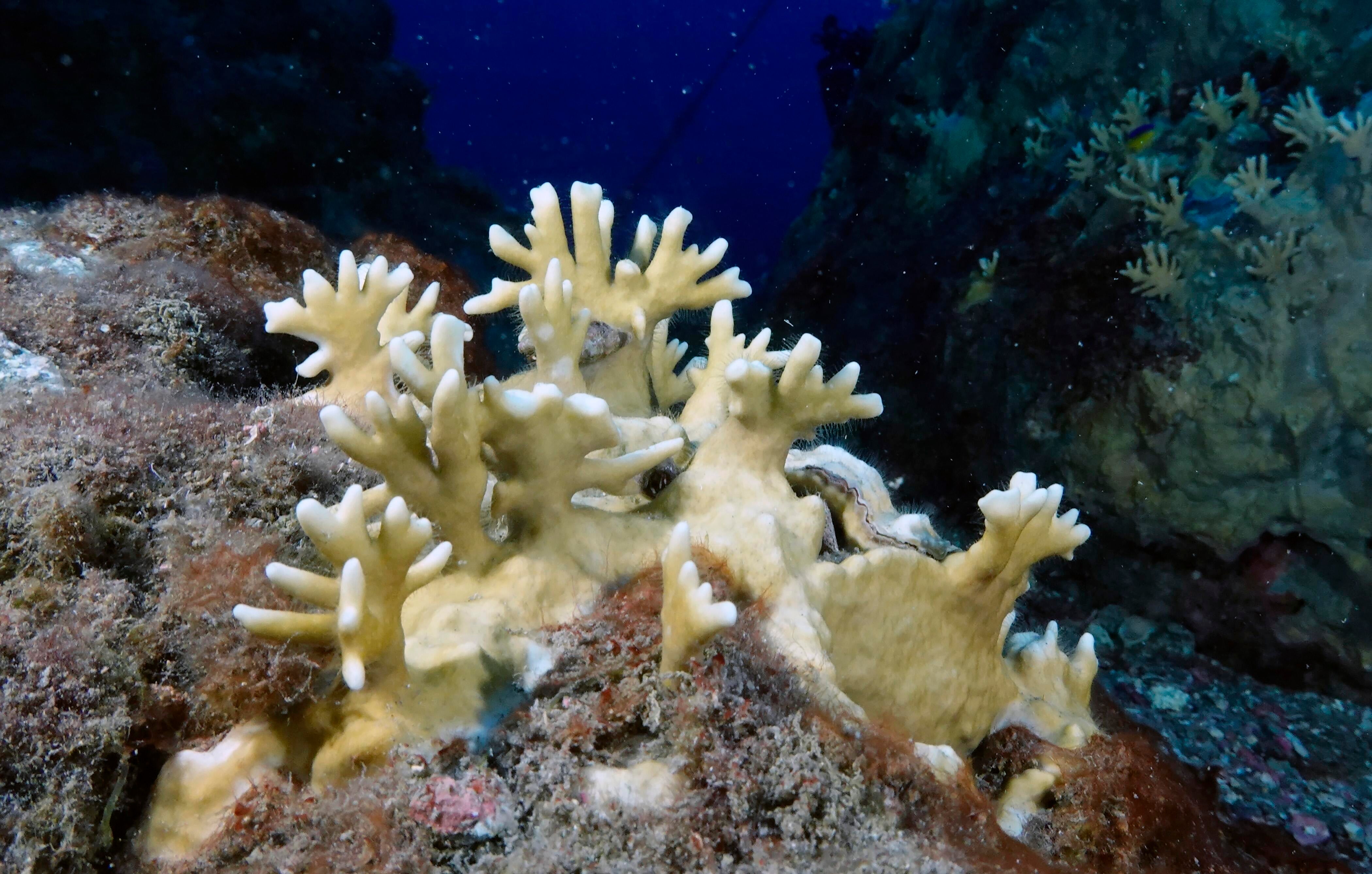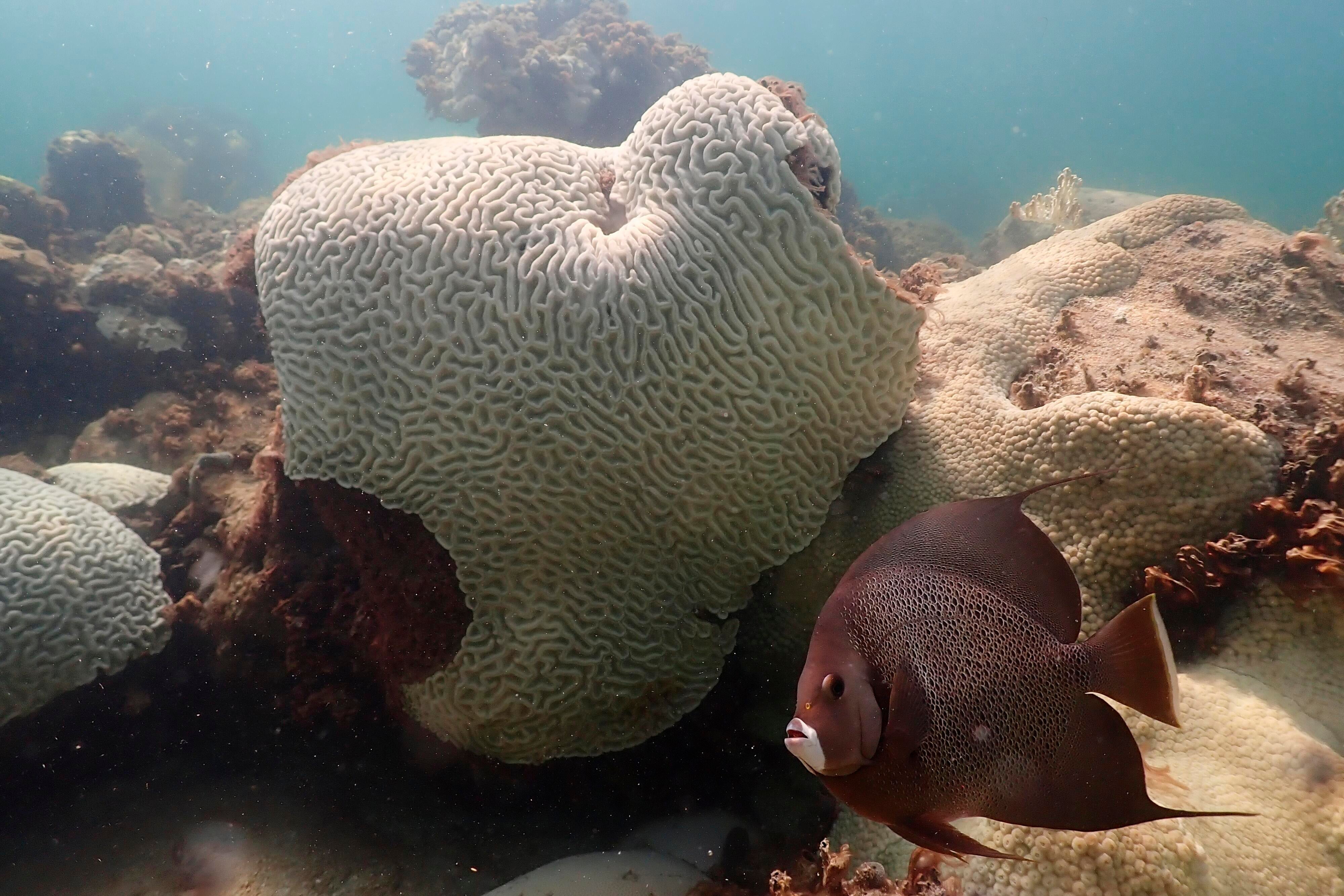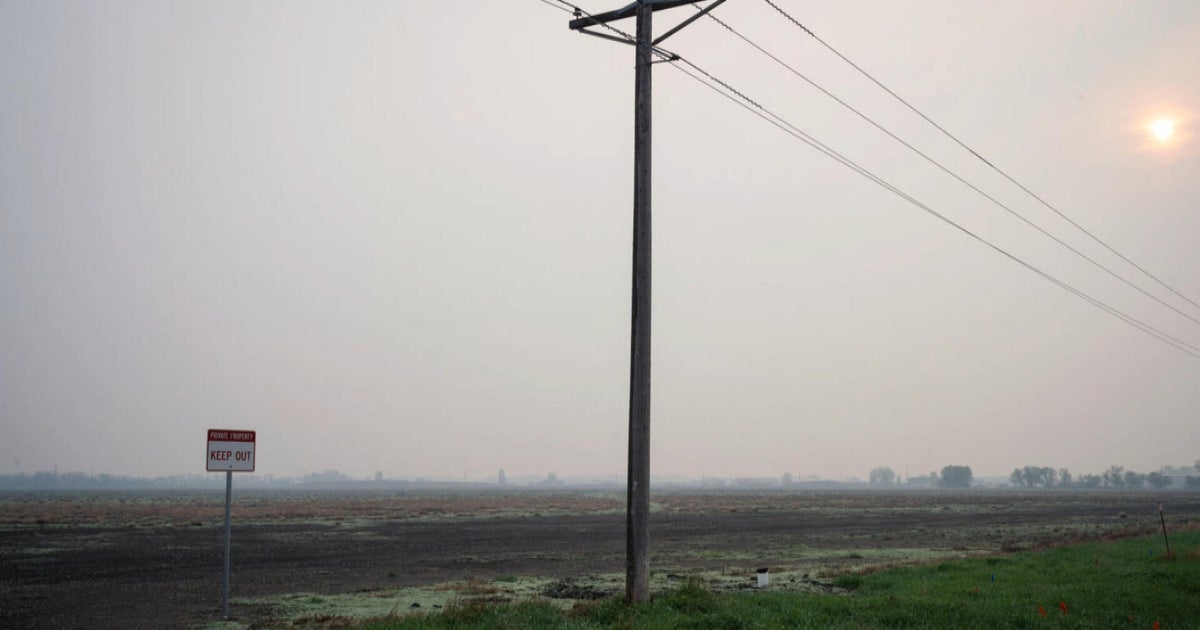Coral reefs around the globe have for years suffered publicly in warming oceans, periodically making headlines when iconic underwater landscapes lose their colors and wither during repeated mass bleaching events caused by climate change. Now, reefs are the first environmental system on Earth to pass a climate "tipping point," according to a new report by climate scientists who call the situation an "unprecedented crisis."
Researchers at the University of Exeter's Global Systems Institute in England have released their second Global Tipping Points report, which examines some of the fundamental processes that support life on this planet in terms of their proximity to benchmarks that may signal permanent damage.
"Tipping points represent critical thresholds in Earth's climate system where small changes can lead to significant, often irreversible consequences," the authors said in their report. Steve Smith, a research fellow at the Global Systems Institute and one of the report's co-authors, told CBS News that tipping points are "all about that point at which change becomes self-propelling, kind of a self-accelerating change."
 Bleached coral is seen at the Flower Garden Banks National Marine Sanctuary in the Gulf of Mexico on Sept. 17, 2023.
LM Otero / AP
Bleached coral is seen at the Flower Garden Banks National Marine Sanctuary in the Gulf of Mexico on Sept. 17, 2023.
LM Otero / AP
The report, published Sunday, comes three years after the institute released its first iteration in 2022 and about a month before the United Nations hosts COP30, an annual climate change conference, in Belém, Brazil, a city in the Amazon rainforest that is itself an example of a major global ecosystem on the brink of a climate emergency. Tim Lenton, the director of the Global Systems Institute and lead author of the report, said in a statement that he hopes his team's findings make it onto the agenda.
"We are rapidly approaching multiple Earth system tipping points that could transform our world, with devastating consequences for people and nature," his statement said. "This demands immediate, unprecedented action from leaders at COP30 and policymakers worldwide."
The 2015 Paris Agreement set upper limits for global warming at 1.5 to 2 degrees Celsius — between 2.7 and 3.6 degrees Fahrenheit — above average levels in preindustrial times. But leaders have repeatedly warned in the years since that countries are falling short of the emissions targets necessary to meet those temperature goals, with the U.N. declaring greenhouse gas emissions in the atmosphere reached all-time highs in 2023. By 2024, the National Oceanic and Atmospheric Administration reported temperatures had risen to about 1.4 degrees Celsius above the preindustrial average.
"A new reality"
Higher ocean temperatures have already degraded coral reefs, which are crucial for marine life and provide habitats for roughly one-fourth of all underwater species. The new report points out that reefs also support the livelihoods of about a billion people, so their deterioration is as much an economic threat as an environmental one.
Scientists have determined that the "tipping point" for coral reefs begins when global warming reaches about 1.2 degrees Celsius, with somewhere between 70 and 90% of coral dying when that number climbs to 1.5 degrees.
"We're very confident that, unfortunately, we're in the middle of the coral reef dieback," Smith said, which, he explained, essentially means "the collapse of coral reefs worldwide."
Reef death is often catalyzed by bleaching, when heat stress causes coral to purge the colorful algae that sustains it and, in turn, become pale and weak. If the stress persists and bleaching is severe or prolonged, the coral can completely break down.
 In this image provide by NOAA, a fish swims near coral showing signs of bleaching off the coast of Islamorada, Florida, on July 23, 2023.
Andrew Ibarra / National Oceanic and Atmospheric Administration via AP
In this image provide by NOAA, a fish swims near coral showing signs of bleaching off the coast of Islamorada, Florida, on July 23, 2023.
Andrew Ibarra / National Oceanic and Atmospheric Administration via AP
The International Coral Reef Initiative announced in April that an estimated 84% of the world's coral reefs were under heat stress. As the new report notes, this is "the most extensive and intense" mass bleaching event ever recorded.
Small pockets of coral are expected to survive, Smith said, and preserving them while minimizing the progression of warming temperatures should be everyone's top priority.
"We're in a new reality whereby we can now say that we've passed the first major climate tipping point, which is the coral reefs," he said. "And obviously we'll have to, as we say, try to reduce the damage. The quicker that we can decarbonize and take greenhouse gases out of the atmosphere, the better."
Ice sheets, ocean currents and the Amazon rainforest
Other environmental systems are on the verge of passing their tipping points, too, according to the report. In addition to coral reefs, it cited the potentially catastrophic effects of a warming world on the Amazon rainforest, ocean currents that influence weather patterns, and glaciers like the Greenland ice sheet, which is currently melting and shedding the equivalent of three Niagara Falls' worth of freshwater into the North Atlantic every hour.
"It's a race against time, really," said Smith. "We have to transform the whole energetic basis of society within a generation, away from fossil fuels and toward this cleaner, safer future to avoid these further tipping points beyond coral reefs and the devastating consequences that they would bring."
The report acknowledged meaningful headway has been made in the shift toward renewable energy, highlighting "positive tipping points" that have been crossed as the use of electric vehicles, solar power and wind power becomes more widespread. The rise of solar power, in particular, is one positive transition that Smith singled out as especially "remarkable" — although he emphasized that more still needs to be done, urgently, to bring the Earth back on track.
"Getting that into the heads of our senior decision-makers is going to be important," said Smith, "because what is traditionally thought of as high impact, low likelihood events, they're actually becoming high impact, high likelihood, if we don't do something now."


















































